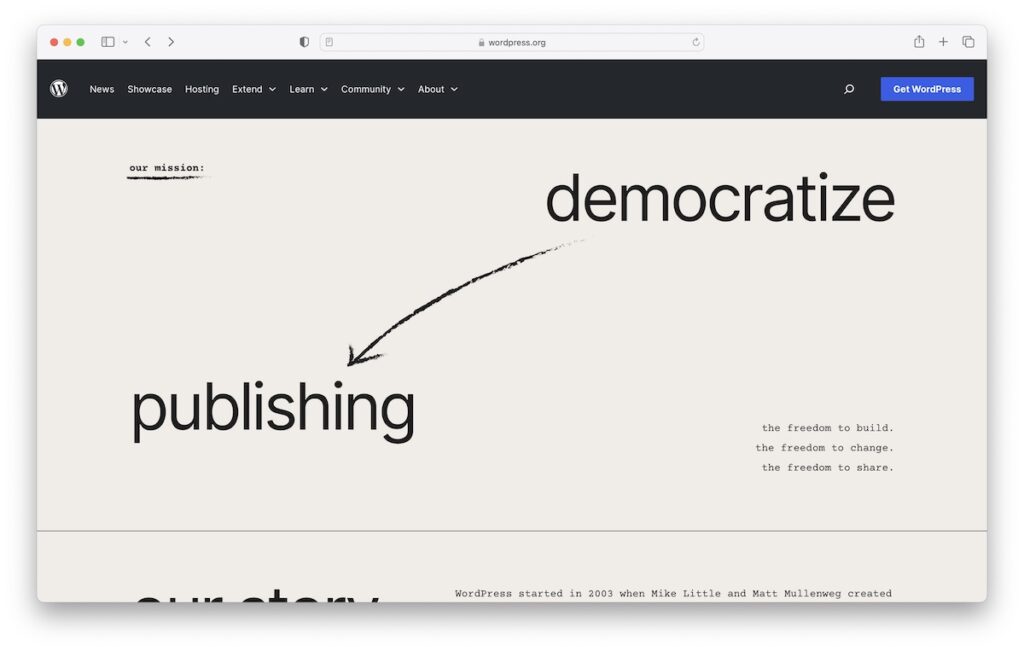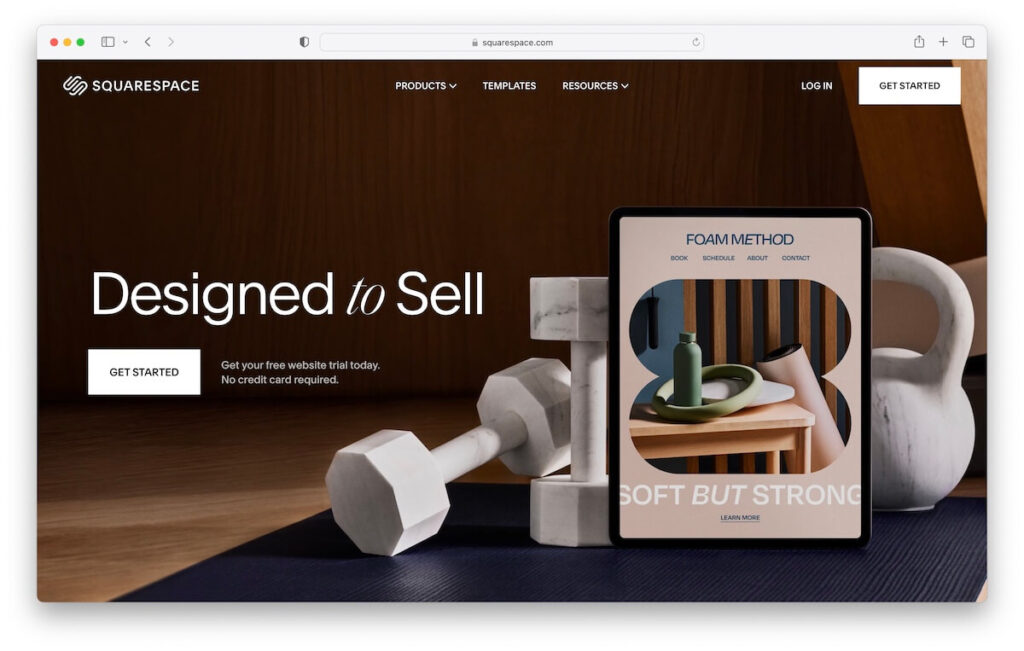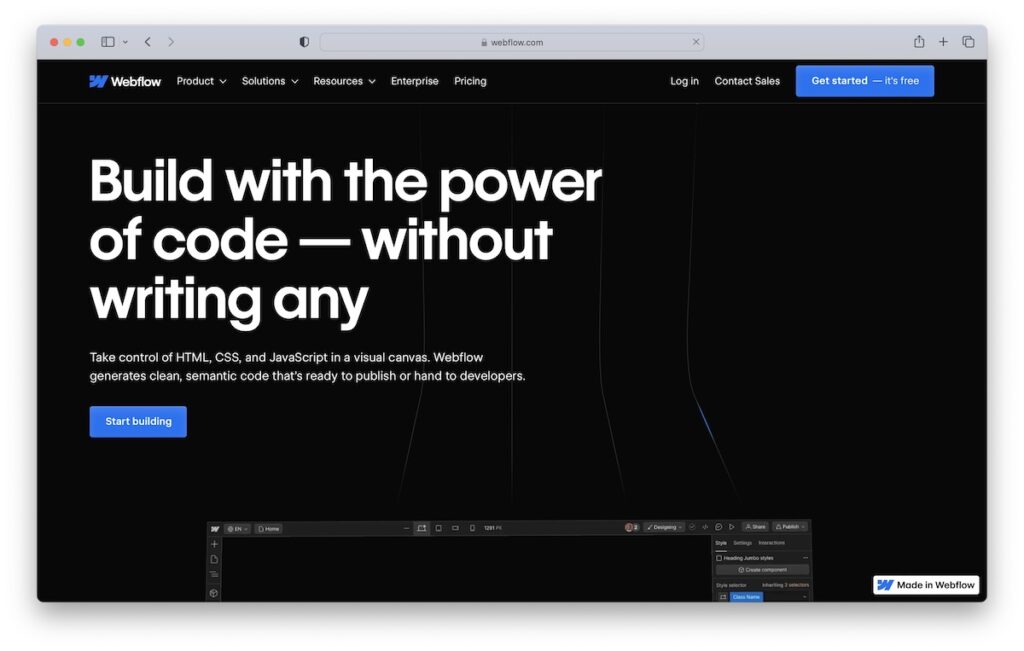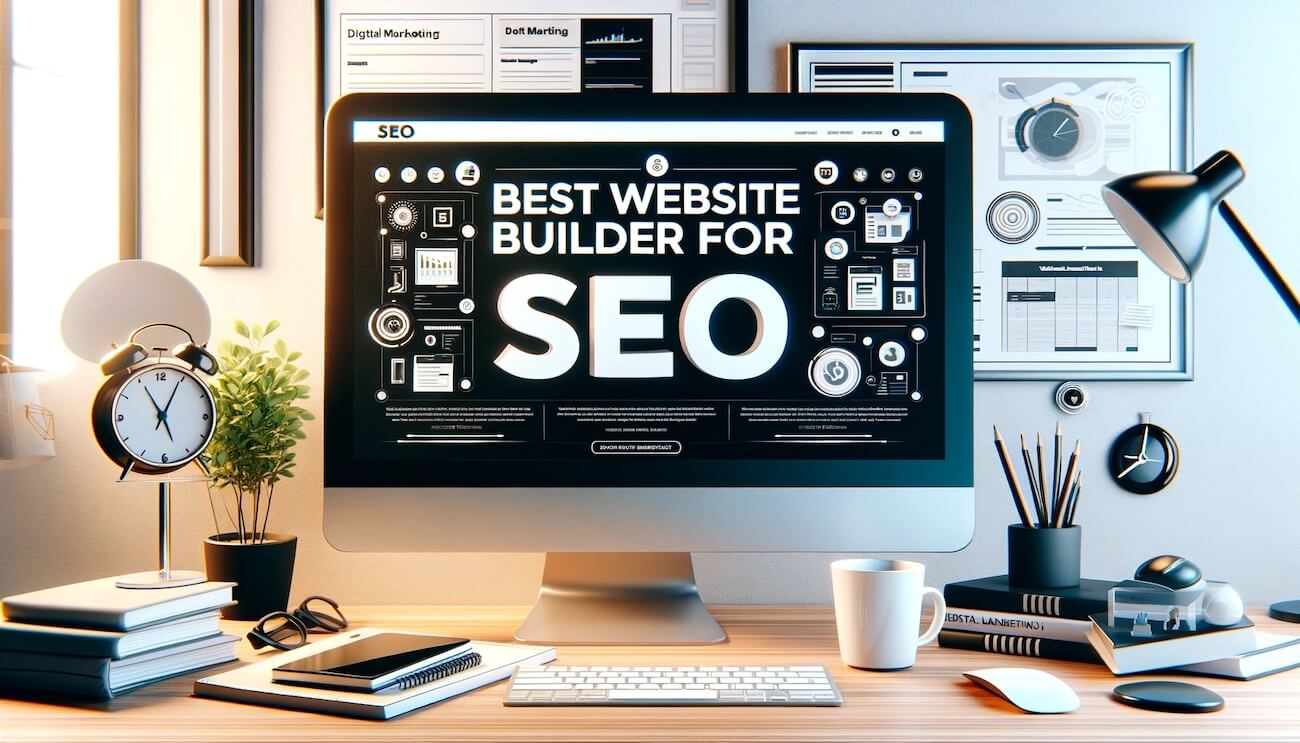Did you know that over 50% of website traffic typically comes from organic search? In the digital age, mastering Search Engine Optimization (SEO) isn’t just an advantage; it’s a necessity.
Choosing the right website builder is crucial in this journey, as it can make or break your site’s SEO potential.
In this comprehensive guide, we will compare the top website builders of 2024 – WordPress, Wix, Squarespace, Shopify, and Webflow – to help you unlock the full potential of SEO for your website.
Best Website Builder for SEO: Side-by-Side Feature Review
To help you make an informed decision, here’s a comparative analysis of the key SEO features offered by WordPress, Wix, Squarespace, Shopify, and Webflow:
| Feature/Builder | WordPress (SEO Plugin) | Wix | Squarespace | Shopify | Webflow |
|---|---|---|---|---|---|
| Ease of Use | Moderate | Very Easy | Easy | Easy | Moderate |
| Customization | Very High | Moderate | Moderate | Moderate | High |
| SEO Tools | Extensive (via plugins) | Built-in & Integrated | Built-in & Integrated | Ecommerce focused | Extensive |
| Performance Optimization | Extensive | Good | Good | Good | Very Good |
| Mobile Optimization | Extensive | High | High | High | Yes |
| Customizable Meta Tags | Advanced | Yes | Yes | Yes | Yes |
| SSL Security | With Hosting | Built-in | Built-in | Built-in | Built-in |
| Structured Data/Schema Markup | Advanced | Basic | Basic | Product-focused | Advanced |
| Redirection Management | Advanced | Basic | No | Basic | Advanced |
| Role-Based Access for SEO Settings | Yes | No | No | No | No |
| Pricing | Free to Premium (varied) | Free to Premium | Standard to Premium | Monthly Plans | Monthly Plans |
| Ideal For | Blogs, Custom sites, Advanced SEO | Beginners, Small businesses | Creatives, Small businesses | E-commerce | Design-focused sites |
1. WordPress: The Customizable SEO Powerhouse

WordPress stands tall in the realm of website builders, known for its robust customization capabilities. With SEO plugins like Rankmath and Yoast, WordPress offers powerful and extensive SEO features for both beginners and advanced users.
- Ease of Use: While WordPress requires a tiny bit of a learning curve, its flexibility is unparalleled. Although many beginners might prefer others for ease of use, but if you ask me WordPress isn’t even hard to learn.
- Customization and Flexibility: For the SEO-savvy, WordPress.org offers unprecedented control. You can dive into the code, tweak performance settings, and integrate advanced SEO strategies like schema markup with ease.
- Pricing and Value for Money: WordPress.com offers various plans, including a free option, but for full SEO control, investing in a premium plan or self-hosting (WordPress.org) is ideal. The cost-effectiveness of WordPress is evident in its flexibility and the vast array of free plugins.
- Performance and Speed: While WordPress itself is not inherently slow, the speed largely depends on your choice of hosting, themes, and plugins. A well-optimized WordPress site can load swiftly, boosting your SEO.
WordPress SEO Features
WordPress’s real strength lies in its vast collection of plugins like Yoast SEO, which guides you through optimizing your content and technical SEO settings. From meta tags to sitemaps, WordPress plugins cover almost every aspect of SEO.
- Extensive SEO analysis and recommendations.
- Integration with Google Search Console.
- Rich Snippets and Schema Markup support.
- Advanced redirection manager.
- Internal linking suggestions.
- XML sitemap creation.
- Local SEO optimization features.
- Role-based access control for SEO settings and more.
2. Wix: User-Friendly SEO for Beginners

Wix has carved out a niche as the go-to platform for those who are new to website creation and SEO. It combines user-friendliness with a set of integrated SEO tools, making it an attractive choice for beginners and small businesses.
- Ease of Use: Wix is renowned for its drag-and-drop interface, making website building intuitive and straightforward. This simplicity extends to its SEO features, which are designed to guide users with little to no prior SEO knowledge.
- Customization and Flexibility: While Wix might not offer the same level of customization as WordPress, it provides enough flexibility for most users’ SEO needs. The platform is constantly updating its features to keep up with SEO trends and Google’s algorithms.
- Performance and Speed: In terms of performance, Wix has made strides in improving site speed, but it’s crucial to be mindful of the impact of apps and media on load times. Wix sites are generally well-optimized for speed, especially with recent updates to its platform.
- Pricing and Value for Money: Wix offers a range of pricing plans, including a free option. For more advanced SEO features, their premium plans are recommended. These plans provide additional bandwidth and storage, which can positively impact site performance.
Wix SEO Features
Wix offers a range of built-in SEO tools that simplify the process of optimizing your site. Key features include the Wix SEO Wiz, a step-by-step guide that provides personalized SEO plans, and the ability to easily edit meta titles and descriptions. Moreover, Wix’s partnership with Semrush allows users to conduct keyword research directly within the platform.
- Customizable meta tags and image alt attributes.
- Mobile-optimized and SSL secured websites.
- Structured data and SEO patterns.
- XML sitemap and robots.txt file.
- Extensive SEO guide and support.
- Custom 404 pages.
3. Shopify: Optimizing E-commerce for SEO

As a leading e-commerce platform, Shopify offers specialized SEO features tailored to online stores. It’s an ideal choice for businesses looking to optimize their online shops for search engines.
- Ease of Use: Shopify’s platform is user-friendly, allowing store owners to manage their SEO with ease. The platform guides users through the basics of e-commerce SEO, making it accessible even for those new to SEO.
- Customization and Flexibility: Shopify allows for significant customization through its app marketplace, where users can find numerous SEO apps and tools to extend their store’s capabilities.
- Performance and Speed: Shopify stores generally offer good loading times, which is vital for maintaining both user engagement and SEO rankings.
- Pricing and Value for Money: While Shopify’s plans are slightly higher priced, they offer comprehensive SEO features that are essential for e-commerce success.
Shopify SEO Features
Key SEO features include customizable meta titles and descriptions, automatic sitemap generation, and easy-to-use alt text fields for images. Shopify also ensures that its themes are SEO-friendly, which is crucial for e-commerce sites.
- Editable titles, meta descriptions, and URLs.
- Automatic sitemap.xml and robots.txt files.
- Free SSL certificate.
- Mobile-friendly themes.
- Social media linking and sharing options.
- Product structured data.
4. Squarespace: Integrated SEO for Creative Professionals

Squarespace is favored by creative professionals for its sleek templates and design-centric approach. It not only excels in aesthetics but also offers a suite of integrated SEO tools ideal for those who value both form and function.
- Ease of Use: With a focus on user experience, Squarespace offers a clean and intuitive interface. Its SEO settings are seamlessly integrated, making it easy for users to optimize their sites without feeling overwhelmed.
- Customization and Flexibility: While it might not offer the same level of customization as WordPress, Squarespace provides enough flexibility for most users, especially those in creative fields. Its templates are not only visually appealing but also optimized for search engines.
- Performance and Speed: Squarespace websites are known for their solid performance, with a focus on optimal loading times and mobile responsiveness, both critical for SEO.
- Pricing and Value for Money: Squarespace’s pricing is straightforward, with various tiers catering to different needs. For users focused on SEO, the higher-tier plans offer more advanced features and capabilities.
Squarespace SEO Features
Squarespace shines with its built-in SEO functionalities. From automatically structured data to clean URL structures, it covers the essentials of SEO. The platform also offers robust image optimization, ensuring your visuals contribute positively to your SEO efforts.
- SEO-friendly site structure.
- Customizable page titles, meta descriptions, and URLs.
- Automatic mobile optimization.
- Clean HTML markup.
- Built-in tools for social sharing and image alt text.
- Automatic sitemap generation.
5. Webflow: Where Design Meets SEO

Webflow is a unique website builder that blends design flexibility with SEO capabilities. It appeals to users who want control over both the aesthetic and technical aspects of their websites.
- Ease of Use: Webflow has a steeper learning curve compared to other website builders, but it provides unparalleled design freedom, which can be leveraged for SEO.
- Customization and Flexibility: The platform stands out for its customization capabilities, allowing for detailed design changes that can positively impact SEO.
- Performance and Speed: Webflow sites are optimized for performance, with fast loading times being a standard feature, contributing to better SEO rankings.
- Pricing and Value for Money: Webflow’s pricing is on par with its advanced capabilities, offering plans that cater to both individual designers and larger teams.
Webflow SEO Features
Webflow offers comprehensive SEO settings, including editable meta titles, descriptions, and image alt texts. It also supports 301 redirects and auto-generates sitemaps, making it a robust choice for SEO.
- Fine control over SEO markup.
- Automatic meta titles and descriptions.
- Indexing and sitemap controls.
- Robust 301 redirects management.
- Alt tag editing for images.
- High-performance hosting with fast load times.
General SEO Strategy
No matter which website builder you choose, following general SEO best practices is crucial. Here are some tips:
- Keyword Research: Understand your audience and what they are searching for.
- Quality Content: Regularly publish relevant and valuable content.
- On-Page Optimization: Use appropriate titles, meta descriptions, and alt texts.
- Mobile Optimization: Ensure your site is responsive and mobile-friendly.
- Page Speed: Optimize loading times with compressed images and minimal plugins.
- Internal Linking: Create a network within your site to keep users engaged.
- Backlinks: Build a portfolio of quality backlinks from reputable sources.
Choosing the right website builder for SEO is a pivotal decision. Whether you prioritize ease of use, customization, e-commerce functionality, or design aesthetics, there’s a platform that aligns with your SEO goals.
Remember, the best website builder is one that not only suits your current needs but also scales with your growing SEO expertise.





